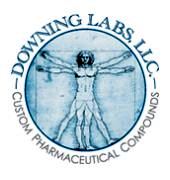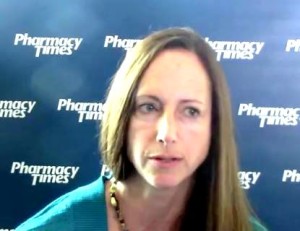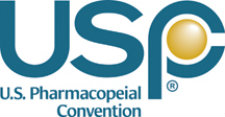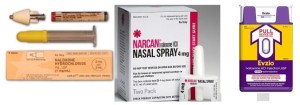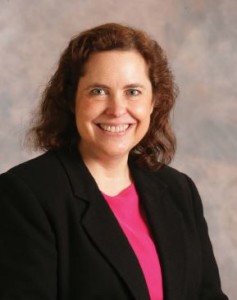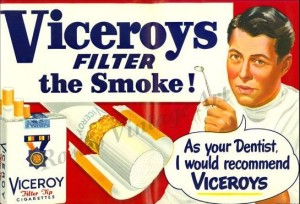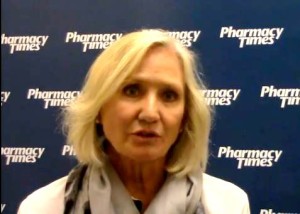- FDA sues to stop a wayward drug compounder (statnews.com)
After nearly three years of sparring with a recalcitrant compounder, the Food and Drug Administration has filed a lawsuit asking a federal court to prevent Downing Labs from continuing operations. And the compounder agreed to a consent decree, which requires the company to take various steps before operations can resume...In the lawsuit, the agency cited numerous violations of so-called good manufacturing practices and several issued warnings to the company...about its failure to comply with regulations. Most recently, the Dallas-based compounder, which in 2014 refused to an FDA request to recall some products, failed yet another FDA inspection...the FDA inspectors found unsanitary conditions, according to the lawsuit...tests...found traces of...bacteria which, “if introduced into the body, can cause septic shock, pneumonia, and urinary tract infections,” the lawsuit stated...the Drug Quality and Security Act was passed to, in part, bolster compounding oversight. In fact, the FDA cited the defiant posture taken by Downing as an example of why a new law was needed to allow the agency to bolster its oversight and pursue legal options when compounders refused to upgrade operations.
- Prevention Strategies Pharmacists Can Use to Reduce Errors (pharmacytimes.com)
Natasha Nicol, PharmD, FASHP, director of Global Patient Safety Affairs at Cardinal Health, provides prevention strategies to reduce medication errors.
- Local Residents Indicted in Multi-Million Dollar Ketamine Conspiracy (dea.gov)
Four people (Dr. Michael Kelly, Priscilla Orosco, Joyce James, Tamara Mitchell) have been charged in a $17 million health insurance fraud scheme involving the sale of ketamine to patients without a valid prescription…The four-count indictment alleges Mitchell was an owner of two pharmacies, Diamond and Save Rite, that sold controlled substances as part of a marketing scheme, rather than for legitimate medical need. Diamond Pharmacy and Save Rite almost exclusively sold compounded creams containing prescription drugs and ketamine to the public by using pre-signed prescriptions to fill orders for customers, who had the “right” insurance plans, according to the charges…Mitchell allegedly hired pharmacy technician Orosco and pharmacist James to conduct the day-to-day operations of the business…Diamond Pharmacy paid (Dr.) Kelly thousands of dollars per month to provide pre-signed prescriptions without examining patients. Diamond and Save Rite (pharmacies) then allegedly billed insurance companies for compounded creams containing controlled substances…the four…face up to 20 years in federal prison and a possible $250,000 maximum fine. They also face another 10 years for both the conspiracy to distribute and for aiding the distribution of Ketamine as well as a possible $500,000 fine.
- General Chapter <800> Hazardous Drugs—Handling in Healthcare Settings to be Published in USP 39–NF 34, First Supplement (usp.org)Draft <800> Hazardous Drugs—Handling in Healthcare Settings (usp.org)
The Compounding Expert Committee approved a new General Chapter, <800> Hazardous Drugs—Handling in Healthcare Settings. The purpose of this General Chapter is to provide standards to protect personnel, patients and the environment when handling hazardous drugs (HDs). The chapter applies to all healthcare personnel and all entities which handle HDs. Building on existing standards and guidelines, General Chapter <800> provides a comprehensive approach for handling HDs in healthcare settings with the ultimate goal of preventing and/or limiting potential exposures to HDs...The revised General Chapter <800> will be published on February 1, 2016 in the First Supplement to USP 39–NF 34. Additionally, the Expert Committee approved a delayed official implementation date of July 1, 2018 to allow entities more than two years to implement the chapter.
- Risk Tool Helps Pharmacists Qualify Patients for Take-Home Naloxone (pharmacytimes.com)
Alongside the growing prevalence of chronic pain and prescription opioid use, drug-related overdose continues to claim the lives of 17,000 Americans each year...Deaths from unintentional opioid overdose have increased 56% since 2010. In 2013, 83% of the opioid overdoses were unintentional...In 2010, there were approximately 136,000 emergency room visits related to opioid-induced respiratory depression and overdose. Needless to say, opioid overdoses are...drastically increasing health care costs...When naloxone is administered by first responders outside an institutional setting, it can improve outcomes for emergency opioid reversal prior to a patient reaching the emergency department. There are currently 2 FDA-approved naloxone formulations for take-home use: the auto-injector...and the new intranasal formulation...
- Who Should Receive Take-Home Naloxone?
- The Risk Index for Overdose or Serious Opioid-Induced Respiratory Depression (RIOSORD)
- Risk Factors Associated with OSORD (opioid-induced respiratory depression)
- How Can I Use RIOSORD in a Community Pharmacy?
- Risk Mitigation and Patient Education
- Conclusion
With the availability of naloxone for take-home use, no one should lament over the loss of a loved one because a life-saving medication was not easily accessible...We can’t agree that naloxone availability will end opioid overdose deaths, but it certainly is our professional responsibility to ensure that we’ve taken every step to reduce risks...Pharmacists, physicians, and student clinicians have an excellent opportunity to mitigate opioid overdose risks by employing the validated RIOSORD tool. RIOSORD can aid opioid prescribers in identifying at risk patients, and it can also help encourage a candid dialogue among pharmacists, patients, and caregivers to reduce patient harm.
- Survey: Employers taking action to cut specialty drug coverage (drugstorenews.com)
Employers are taking significant action to reduce their exposure to rising costs associated with specialty medicines...Although pharmacy represents approximately 20% of employer-sponsored medical benefits costs, it is increasing at a rate that accounts for roughly half of medical cost inflation and should be a top priority for employers...The price, utilization and delivery of specialty prescription drugs, many of which require special handling or delivery, are a top pain point for employers...employers are beginning to consider new aggressive approaches... employers have added new coverage and utilization restrictions for specialty pharmacy, such as requiring prior authorization or limiting quantities based on clinical evidence... employers plan to exclude compounds from their benefit coverage...the compounding process results in higher cost and their use may not be FDA-approved in compound form, health insurers increasingly will not cover them...
- Strength in Numbers Cardiologists recognize the value of pharmacists on the healthcare team as they push for provider status. (aacp.org)The Role of the Clinical Pharmacist in the Care of Patients With Cardiovascular Disease Abstract (sub req) (sciencedirect.com)
The American College of Cardiology has recognized pharmacists as advanced practice providers, valuable to cardiovascular team-based care…sees this as an inspiring time, encouraging other historically physician-driven, non-pharmacist organizations to support pharmacists, as they push for healthcare provider status…“ACC recognizes that there’s a shortage of cardiologists,”…The ACC recognizes that there’s a lot of work to go around but not enough cardiologists to do it. They see the benefit of advanced practice providers, which includes pharmacists, nurse practitioners and physician assistants, and they believe that’s the way to make it happen…to offer care where care isn’t being given.”… With the ACC’s backing, there’s hope that other non-pharmacist organizations will support pharmacists...
- FIP publishes guide to help pharmacists establish tobacco-free communities (fip.org)
In time for the quit smoking New Year resolutions that are anticipated at the end of this month, the International Pharmaceutical Federation has outlined the wide variety of different ways in which pharmacists can reduce the use of tobacco through a new publication. The briefing document, "Establishing tobacco-free communities: A practical guide for pharmacists", gives a number of examples from around the world, showcasing pharmacists’ value in performing health promotion, triage and referral as well as other interventions.
- How A Pharmacy Can Differentiate Itself from Its Competition (pharmacytimes.com)
Liz Tiefenthaler, president of Pharm Fresh Media, talks about some ways a pharmacy can differentiate itself from its competition.
- ASHP to Launch Comprehensive Digital Drug Information Resource (ashp.org)
ASHP today announced that it will release a comprehensive suite of its…drug information databases, including AHFS Drug Information®, in early 2016. Recruitment for beta testers will begin during ASHP’s 50th Midyear Clinical Meeting this week in New Orleans…The new product, AHFS® Clinical Drug Information, will provide clinicians with easy access to detailed drug information, including real-time drug and safety updates, direct links to more than 60,000 supporting evidence sources, and in-depth coverage of off-label uses… AHFS Clinical Drug Information will be available via Web browser as well as iOS and Android apps. Individual pricing will begin at $10 per month. The user interface will also integrate into clinical workflow solutions in hospitals and ambulatory care settings.

